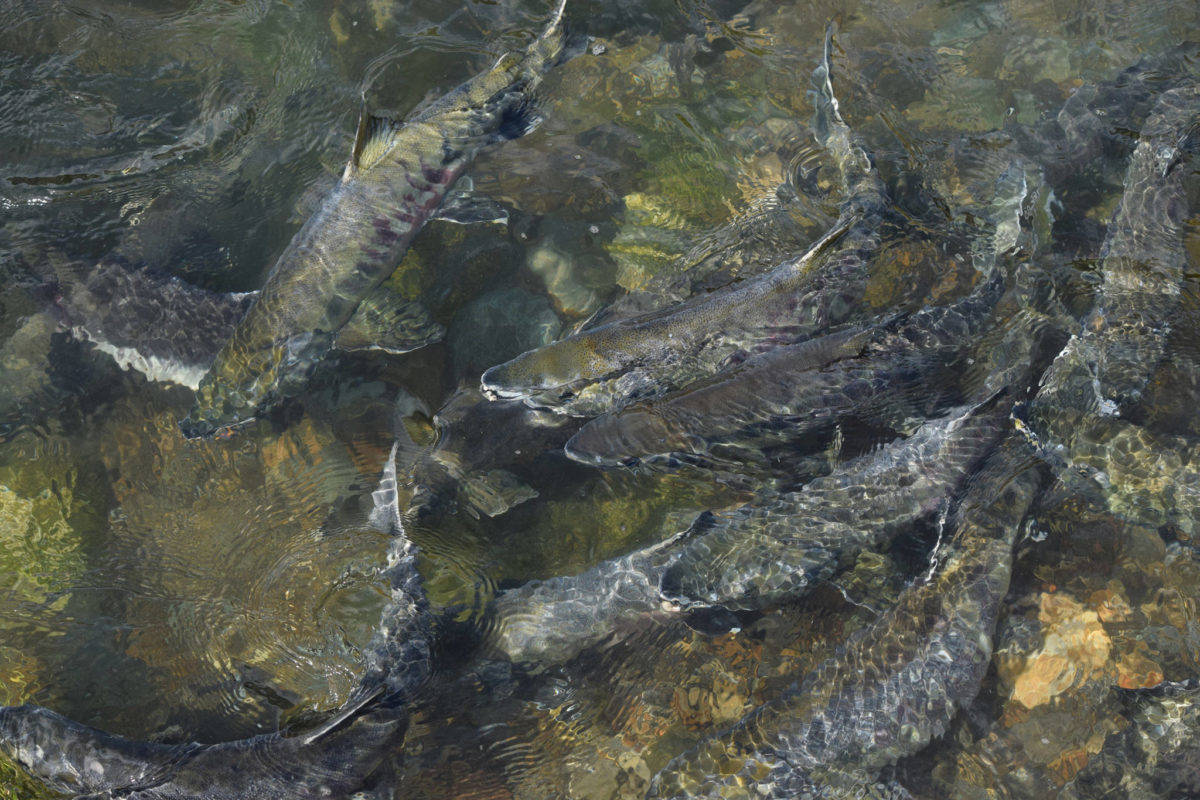This week, the Alaska Board of Fisheries will be holding a new vote on the location of the 2020 Upper Cook Inlet Finfish meeting during a work session.
The decision to hold a new vote came after an investigation by the state ombudsmen found that the board violated the Open Meetings Act.
The vote will take place Thursday, during the ‘miscellaneous business’ portion of the Alaska Board of Fisheries work session’s agenda. A review of the board’s policy regarding the location of the Upper Cook Inlet Finfish Meeting will also occur during miscellaneous business.
Alaska State Ombudsman Kate Burkhart found in a final Aug. 29 report that the Board of Fisheries violated the act when they decided in January 2019 to relocate the finfish meeting from the Kenai/Soldotna area to Anchorage. Burkhart said the board should hold another vote on the location of the 2020 meeting location, after providing notice.
The ombudsman investigation found that while the board had provided notice of its January 2019 meeting, the notice did not include the board’s intent to revisit the issue of where the 2020 finfish meeting would be held.
In an unexpected vote in January, the Alaska Board of Fisheries decided to move the 2020 regulatory meeting from the Kenai Peninsula to Anchorage. The meeting was originally going to be held in Anchorage, but a March 2018 vote moved the 2020 meeting to the Kenai-Soldotna area, and established a policy that rotated the Upper Cook Inlet Finfish meetings between Anchorage, Kenai/Soldotna and Palmer/Wasilla.
At the start of the Arctic-Yukon-Kuskokwim finfish meeting on Tuesday, Jan. 15, Board of Fisheries Chair Reed Morisky announced the board would likely be considering the Upper Cook Inlet meeting location at the end of the meeting. On Friday, Jan. 18, the board reversed their March 2018 decision with a 4-3 vote, moving the 2020 meeting back to Anchorage.
During a break in the Jan. 18 meeting, Morisky told stakeholders from Kenai the board would not take up the issue of the location of the 2020 meeting, and those stakeholders left the meeting based on Morisky’s advice, the ombudsman’s release said.
“Yes, I did speak with the Kenai official and he expressed that if it looked like we weren’t going to take this up, he wanted to leave,” Morisky said on the record at the Jan. 18 meeting, according to the ombudsman’s investigation. “And the conversation we had at the time was that it looked like weren’t going to take this up at the meeting. So, I take full responsibility for that, there was no intent to mislead. He left and circumstances changed, and I apologize for that but we’re here now and we’re going to vote on this.”
The board then voted 4-3 to move the 2020 finfish meeting to Anchorage.
Morisky was unable to describe to the assistant ombudsmen what or how circumstances changed between the time he told Kenai officials the question on the 2020 meeting location would not be raised and later that afternoon when the issue was brought forth for consideration, according to the ombudsmen’s investigation document.
“This not only violates the spirit and the letter of the Open Meetings Act, it brings into question whether the Board Chairperson and members acted in good faith,” the ombudsmen’s investigation said.
A week after the January vote, local legislators, Sen. Peter Micciche, R-Kenai/Soldotna, Rep. Ben Carpenter, R-Nikiski, and Rep. Gary Knopp, R-Kenai/Soldotna, penned a press release and a letter to Morisky and other members of the Board of Fisheries questioning the board’s proceedings.
“Transparency, integrity and process are imperative in the effort to restore public trust,” Micciche said in the Jan. 23 release. “The people of Alaska deserve better. The public process and the Board’s own procedures were circumvented and Kenai Peninsula officials were disrespectfully misled at the January 18th meeting.”
The lawmakers requested the board rescind the actions to move the 2020 meeting.
In response to the ombudsmen’s preliminary report, Morisky submitted an Aug. 15 letter, in which he said he would implement the ombudsmen’s recommendation to hold another vote and would also review the board’s policy, adapted in March 2018, that rotates the Upper Cook Inlet Finfish meeting between Anchorage, Kenai/Soldotna and Palmer/Wasilla to “determine if it holds any future viability.”
Both items are on the agenda for the board’s work session, which will take place Wednesday and Thursday at the Egan Center in Anchorage.

